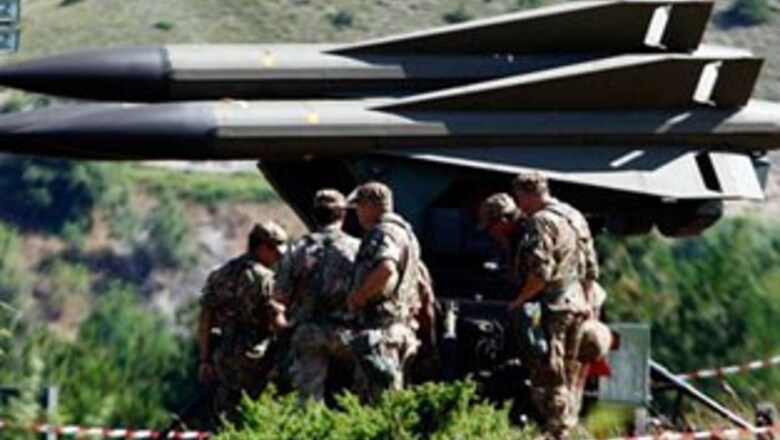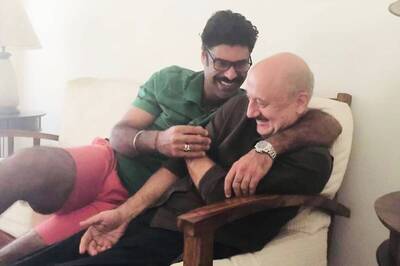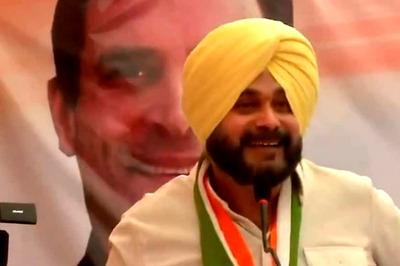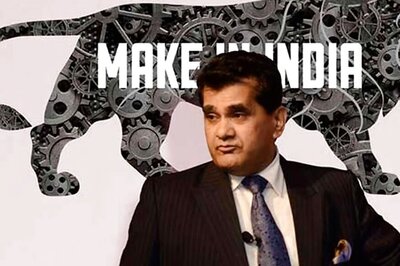
views
L'Aquila: The leaders of France, Brazil and Germany gave fresh momentum on Tuesday to talk about creating a wider, more representative forum as members of the Group of Eight readied for their summit on the world economy, climate change and Iran's crackdown on protesters.
French President Nicolas Sarkozy and Brazilian President Luiz Inacio Lula de Silva called for a more "democratic world order" that would give emerging economies a larger voice in international finance and justice, urging the creation of what they called an "Alliance for Change."
The two leaders made the appeal in an essay that appeared in French and Brazilian newspapers, without elaborating on details or saying if other leaders had signed on.
G-8 leaders on Wednesday start their summit, held in town of L'Aquila in central Italy as a sign of support for its victims of the April 6 quake that devastated the area. The eight — the Britain, Canada, France, Germany, Italy, Japan, Russia and the US — will open their meeting on Thursday to counterparts from Brazil, China, India, Mexico, South Africa and Egypt. On Friday, nine African leaders will join in.
Some leaders say the annual summit, which began as an informal meeting of six leaders of industrial democracies, is too narrow to tackle the big questions about the world economy. In recent years, developing countries have also attended in a limited capacity.
"We are changing, in the sense that we are proposing a new enlarged and more structured forum, which we wouldn't call G-14 or G-13 but nevertheless it will count on the presence and active involvement of countries like China or India or Brazil, which ... can play a very important role" Italy's foreign minister Franco Frattini told AP Television News. "So we are trying to be a bit more flexible."
While Italy and Japan still favour retaining a core G8, German Chancellor Angela Merkel believes the G-20 — comprised of the world's largest economies which have been working together on responses to the world economic crisis — is a more appropriate forum for international political and economic issues.
Merkel told reporters in Berlin on Tuesday that while the world's industrialised nations were representative of the world's economies when the forum was launched in 1975 during the oil crisis, that was no longer the case.
"I think the path will lead to the G-20. I think the international train is running in that direction," Merkel said.
Frattini said he expected a strong condemnation of Iran for the regime's violent crackdown on protesters and on North Korea for launching ballistic missiles into the ocean off of its east coast on Saturday. Both are on Wednesday's agenda. Ethnic violence in China's Xinjiang region that has left at least 156 dead also will be an issue in L'Aquila
Merkel plans to discuss the violence during a bilateral meeting with her Chinese counterpart President Hu Jintao on the sidelines of the summit, a source close to the chancellor said on the condition of anonymity. The chancellor will share her concerns, emphasizing the need to protect freedom of expression and minority rights.
A day before the G-8 leaders gather, security was visible along the 100-kilometer (60-mile) long highway from Rome to L'Aquila, with police officers posted on every overpass and at highway exits. It was part of Italy's massive efforts to avoid a repeat of the G-8 in Genoa eight years ago, when protesters clashed violently with police. One protester was killed.
Still, some of the 54,000 displaced by the 6.3-magnitude quake, mostly living in tents or hotels, have expressed dismay that resources that could have been used to get their homes back in shape and fix roads, have been diverted to sprucing up a police academy where the summit will be held and nearby barracks where the leaders will sleep.
Many remaining residents have left the area during the summit, making the city a ghost town.
Leaders' wives, including Michelle Obama and Sarkozy's Italian-born wife Carla Bruni, will also participate in events on the sidelines of the summit.
The program for the spouses includes a tour of sites in L'Aquila, damaged in the earthquake that killed nearly 300 people, museums in Rome and a meeting with UN food agencies based in Rome on the role of women in fighting hunger. Some will also have audiences with Pope Benedict XVI.
The issue of food security also will be on the summit agenda on Friday, when African leaders join the talks.
On Tuesday, officials from the UN World Food Program in Rome urged world leaders at the G-8 summit to focus on a "twin-track" strategy to combat world hunger.
"If the world is serious about fighting world hunger, as all the leaders have said they are, they will need a twin-track strategy, increasing agricultural production in the long-term and addressing short-term food aid needs," WFP's chief spokeswoman Nancy Roman told reporters in a conference call from the agency's Rome headquarters.
"We have not heard of specific commitments to be made for short-term aid needs, but we don't preclude that. But without a twin-track approach we will not succeed in defeating hunger."




















Comments
0 comment